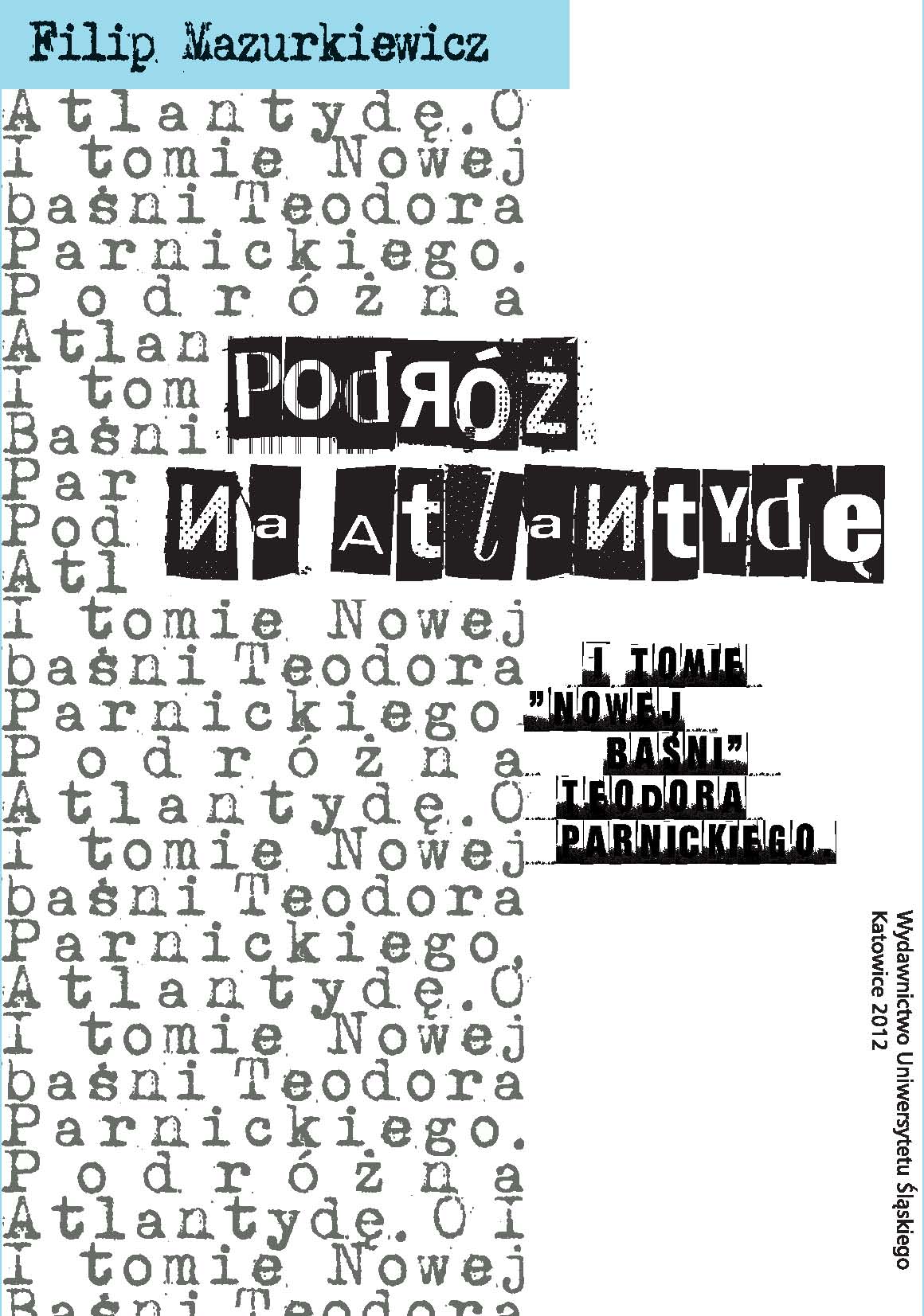Podróż na Atlantydę. O I tomie „Nowej baśni” Teodora Parnickiego
A journey to Atlantis. On the first volume of Teodor Parnicki’s A New Fairy Tale
Author(s): Filip Mazurkiewicz
Subject(s): Language and Literature Studies, Studies of Literature
Published by: Wydawnictwo Uniwersytetu Śląskiego
Keywords: Atlantis; Teodor Parnicki
Summary/Abstract: The present work is most of all an analysis of volume I of the series of novels by TeodorParnicki Nowa baśń (A New Fairy Tale), entitled Robotnicy wezwani o jedenastej (WorkersCalled at Eleven). The scope of the study defines both the work’s merits and its shortcomings.Amongst its advantages can be counted the completeness of the author’s analysis,which results in his work being the very first exhaustive “guidebook” for the novel. Onthe other hand, the work’s disadvantage is, induced by Parnicki’s text, intricacy of thedissertation, stemming from the novel’s purely historical context. If a reader of the dissertationis not acquainted with the novel in question, the analysis will most certainlyseem tedious. Such a meticulous analysis, however, is indispensable for the subsequentinterpretations having a two-way course.Firstly, the interpretation follows the thread of the inspiration Ingarden’s or, morebroadly, phenomenological thought, had for Parnicki’s writing. Here we deal with theinfluence on generic transformations of the historical novel as a literary text and the effectthe above-mentioned thought had on the way of perceiving, so to speak, historicityitself as a textual/nontextual correlate of the novel. Literaryness is treated by Ingardenhimself as a kind of border marking the status of objects and characters appearing inthe literary work – and the essence of this border is the suspension of assertion of thejudgments said in a text. But, a historical novel seems to be a peculiar case in this scope,where it can be said that the suspension of assertion is the slightest. Parnicki followedthis trace and transformed the classical genre of historical novel in order to exceed thissuspension to the greatest possible extent. Therefore, the novels by Parnicki shouldby classified as naturally historical novels. Beings thus appear in these novels in theirnaturally historical, not simply historical, manner. What results from this is a particularconception of history understood as natural histories to be regained; histories which intheir singular occurrence are always primarily nontextual and not yet discussed. Primarilythey are biological, not textual.The second group of interpretive operations aims to determine the thematic field ofParnicki’s naturally historical novels as the novels on death. The Parnicki’s text arduouslypenetrates various European myths and tales considering death, testing if they bring anyform of explanation or consolation. The answer to this question is negative. Eventually,death remains inconceivable phenomenon, escaping every attempt to explain or understandit. And this is the conviction that Parnicki leaves his reader with. In the last scene ofthe novel all the text on death silent together with the voice of the narrator – what staysat the stage in the bare life that dies.The principle context of interpretation appears to be the myth of Atlantis that hasa triple meaning in the novel. Firstly, its literally meaning is a mythical land that cannotbe conquered, even thought the protagonists try to reach its shore. Second, it signifiesunconquerable land of “real” history, the land of reliable history, a history-being. Third,the Atlantis becomes a metaphor of death, because only through death we have a brushof experience that cannot be pass on or expressed in words.
- E-ISBN-13: 978-83-8012-500-1
- Print-ISBN-13: 978-83-226-2056-4
- Page Count: 202
- Publication Year: 2012
- Language: Polish
- eBook-PDF
- Table of Content
- Introduction

